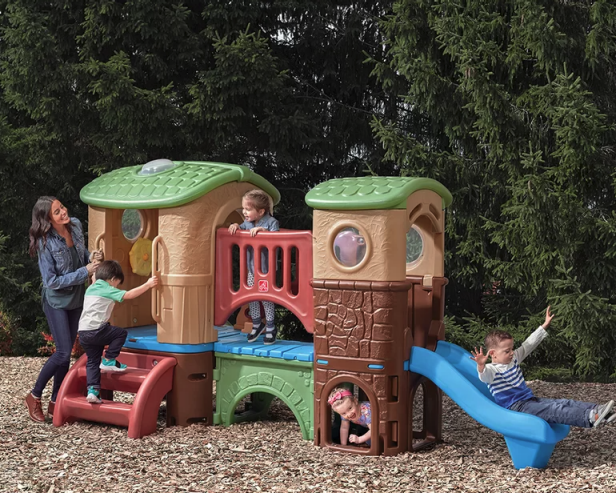
Harmony in Motion: Nurturing Balanced Playtime for Kids

Fostering Well-rounded Development: Nurturing Balanced Playtime for Kids
Balanced playtime is integral to a child’s overall development, encompassing physical, cognitive, and emotional aspects. Let’s explore the importance of providing a well-rounded and balanced play environment for the flourishing well-being of our young ones.
The Multifaceted Benefits of Play: Beyond Entertainment
Play is not merely a source of entertainment; it’s a fundamental aspect of a child’s growth. Balanced playtime contributes to the development of motor skills, enhances cognitive abilities, fosters creativity, and nurtures social and emotional intelligence. Through diverse play experiences, children acquire valuable life skills in a natural and enjoyable way.
Outdoor Adventures: The Joy of Active Play
Balanced playtime includes a significant focus on outdoor activities. Active play, such as running, jumping, and climbing, not only promotes physical health but also instills a love for nature and the outdoors. Outdoor adventures allow children to explore their surroundings, develop spatial awareness, and experience the joy of movement.
Imaginative Play: Cultivating Creativity and Problem-Solving
Engaging in imaginative play is essential for balanced development. Whether it’s playing make-believe, building with blocks, or creating imaginary worlds, this type of play cultivates creativity and problem-solving skills. Imaginative play encourages children to express themselves, think critically, and develop a rich inner world.
Educational Games: Play with a Purpose
Balanced playtime for kids integrates educational games that combine learning with fun. Board games, puzzles, and interactive activities designed for specific age groups enhance cognitive abilities, improve concentration, and introduce foundational concepts. Educational games transform playtime into valuable learning experiences.
Social Play: Developing Communication and Cooperation
Balanced playtime includes opportunities for social interaction. Group activities and games foster communication skills, cooperation, and the ability to work as a team. Social play teaches children about empathy, sharing, and resolving conflicts, laying the groundwork for positive interpersonal relationships.
Unstructured Play: Allowing for Freedom and Creativity
In the midst of planned activities, unstructured play is equally crucial. Providing unstructured time allows children the freedom to explore their interests, initiate games, and express themselves spontaneously. Unstructured play nurtures independence, self-discovery, and the joy of self-directed exploration.
Balancing Screen Time: Mindful Use of Technology
In today’s digital age, balancing screen time is a key consideration for balanced playtime. While technology can offer educational benefits, it’s important to set limits and encourage a variety of play experiences beyond screens. Mindful use of technology ensures that play remains diverse, active, and conducive to well-rounded development.
Parental Involvement: Nurturing Bonds through Play
Parents play a vital role in facilitating balanced playtime. Actively engaging in play with children strengthens the parent-child bond, encourages communication, and provides opportunities for shared experiences. Parental involvement also allows for guidance and supervision, ensuring a safe and enriching play environment.
Creating Play Spaces: Designing for Exploration and Safety
Balanced playtime is enhanced by creating conducive play spaces. Whether indoors or outdoors, these spaces should encourage exploration, creativity, and safety. Designing play areas with age-appropriate toys, equipment, and interactive elements ensures that children can play freely while parents have peace of mind about their safety.
Holistic Growth: The Lasting Impact of Balanced Playtime
In conclusion, the importance of balanced playtime for kids cannot be overstated. It is a holistic approach that fosters physical health, cognitive development, emotional intelligence, and social skills. As we prioritize balanced play for our children, we contribute to their well-rounded growth and set the stage for a future of curiosity, resilience, and joy.
To learn more about nurturing balanced playtime for kids and its impact on their development, visit petuniapicklebottom.org. Your active involvement in creating a balanced play environment ensures that your child’s playtime becomes a source of joy and a foundation for lifelong learning.








